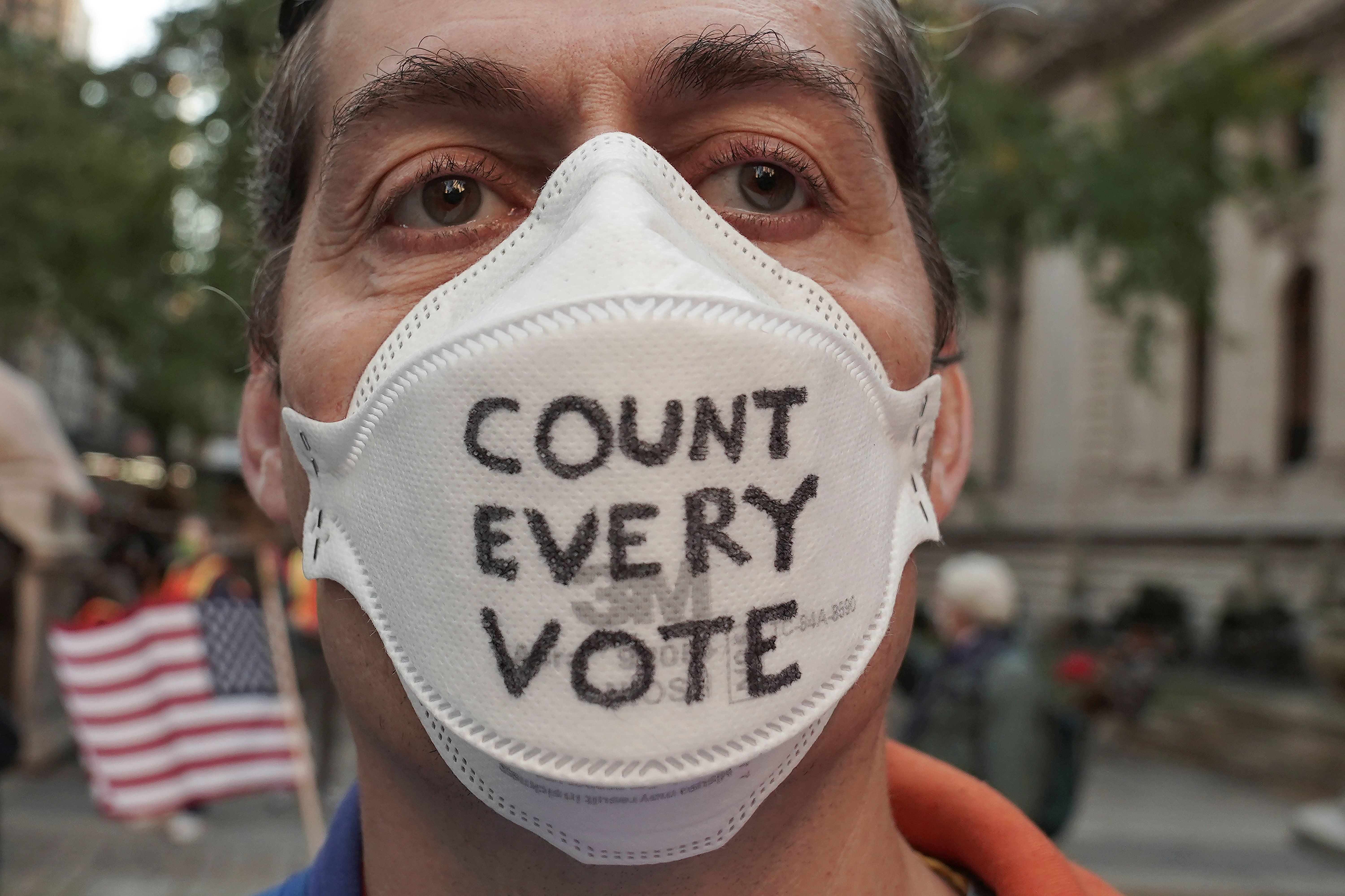What We’re Watching: No US election winner yet, Myanmar’s election, EU rule-of-law deal
US presidential race is (still) on: Three days later, the US presidential contest remains undecided. We're keeping an eye on four battleground states — Arizona, Georgia, Nevada, and Pennsylvania — that'll decide who gets the 270 electoral college votes needed to become the next occupant of the White House. Still-emerging results from these states and the math make Biden the favorite to win because despite razor-thin margins, the vast majority of outstanding ballots are mail-in votes in blue urban areas. Meanwhile, the Trump campaign is crying foul about the entire process, demanding that the count stop where he is ahead... yet continue in Arizona, where the president is trailing Biden. Team Trump has already filed lawsuits in all these states as well as in Michigan and Wisconsin — which have already been called for his rival — but most experts agree that the legal basis for electoral fraud is flimsy, and that Trump will ultimately fail in his crusade for the Supreme Court to rule on disputed state results. Will it all finally end on Friday?
Myanmar votes: Myanmar goes to the polls on Sunday in its second general election since the return of "democracy" a decade ago. The National League of Democracy (NLD) led by Aung San Suu Kyi, the 1989 Nobel Peace Prize laureate and de facto leader of the country, is expected to sweep the vote, mainly because there is no strong opposition in parts of Myanmar except in a handful of states dominated by minority ethnic groups long plagued by conflict. But the wider story is how the government's decision to cancel voting in some of the conflict-ridden states and disenfranchise all Rohingya Muslims indicate that Myanmar — ruled by a ham-fisted military junta from 1962 to 2010 — is becoming less democratic. After all, the NLD effectively shares power with the generals, who control the top portfolios in Suu Kyi's cabinet and have a constitutional stranglehold on parliament. In other words, Myanmar has the trappings of a democracy but the military still calls the shots, as they have done for most of the country's history. We're watching to see if low turnout confirms that most Myanmar people who waited so long for an election are politically apathetic, with dire consequences for the country's (democratic) future.
Can the EU keep good money from bad actors? For several years now, the European Union has been at odds with the avowedly "illiberal" governments of Hungary and Poland over their increasingly brazen flouting of EU democratic norms — judicial independence and civil society protections in particular. But Brussels has been largely powerless to do anything about it because the two countries have shielded each other in EU policy votes that require unanimous consent. On Thursday, however, negotiators finalizing the bloc's 2 trillion euro ($2.36 trillion) budget and coronavirus recovery package reached a compromise that should give the EU a little more muscle — but only a little. Under the agreement, Brussels will be able to cut funding over democracy concerns, only two conditions: first, that the rule-of-law threat directly affects how EU money is spent, and second, that a simple majority of member states approve. Those conditions are significantly narrow that Budapest and Warsaw can probably agree to them. Whether they are sufficiently toothy to slow the "illiberal" roll of both countries will remain to be seen.